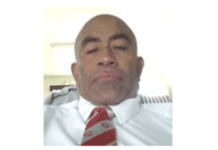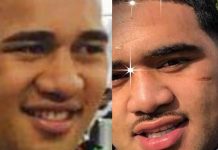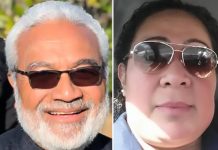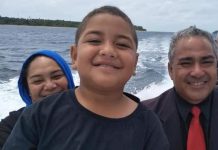Vaiola Hospital in Nuku’alofa, Tonga is the first hospital in the Pacific region to offer kidney stone keyhole surgery, courtesy of a visiting urology team funded by AusAID.
The seven-person team who made Vaiola Hospital their home in June comprised of three surgeons, two anaesthetists and two nurses. They were brought together through the AusAID-funded Pacific Island Program (PIP) managed by the Royal Australasian College of Surgeons (RACS).
Two surgical theatres—set aside by the superintendent and his staff—were put to good use. By running surgeries simultaneously, the team were able to give life changing surgical treatment for almost 30 Tongan patients.
Five of these patients—suffering from kidney stones—were especially fortunate. They became the first patients in the Pacific to receive kidney stone treatment using keyhole surgery, a treatment that has been unavailable in the Pacific due to a lack of equipment and capable surgeons.
The procedure involves making an incision the size of a keyhole, and into the kidney. The surgeon can then grasp and remove small stones, or larger stones that need to be broken up before removal. This is an advanced treatment compared to the ‘open’ kidney removal surgery employed regularly throughout the Pacific, which has not been used in Australia for more than 20 years.
Dr Alex Cato, one of the team surgeons told Nuku’alofa Post he was 'elated' at the success of the surgeries in Tonga, and is looking forward to taking the procedure to other Pacific island countries.
The urology team also ran clinics with up to 60 patients, and worked with local surgeons and health professionals to build capacity.
'I have been part of the visiting urology team for the past three years, and with each visit I continue to see remarkable improvement by the local health professionals', said Dr Cato, Coordinator for Urology for PIP.
'Staff at Vaiola Hospital are well on their way to being able to handle modern urological techniques'.
The overwhelming support from the Tongan community, especially from family of patients receiving treatment, was more than evident through the gifts and food provided for the team during their stay in Tonga.
PIP will send other urology teams to Tonga in November and next year, as well as other surgical and medical specialties. This demonstrates the instrumental role that PIP plays in improving the health of the Pacific.
AusAID has funded PIP since its inception in 1995. Under the current contract, an amount of AUD 5.58 million has been budgeted to support PIP activities until December 2014.
PIP works collaboratively with Ministries of Health and hospitals from 11 Pacific island countries to support specialist clinical services, education, training and capacity development and promote international cooperation and exchange.
How keyhole surgery conducted: Click here
SOURCE: AusAID







